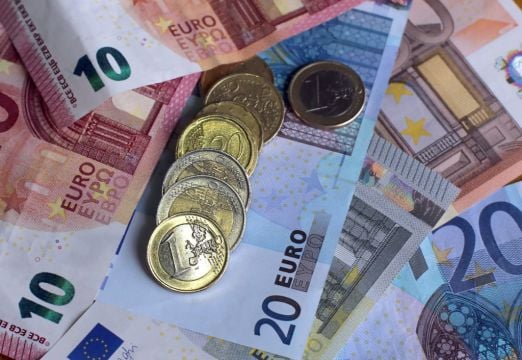The upturn in the July-September quarter — and the worries about what lies ahead — echoed the situation in the US, where reopenings led to strong third-quarter recovery but did not dispel fears for the winter months.
The European rebound was the largest increase since statistics started in 1995. It followed an 11.8% contraction in the second quarter in the 19 European Union member countries that use the euro currency.
The April-June period was when restrictions on activities and gatherings were most severe during the first wave of the pandemic.
Many economists had expected a rebound of around 10%.
The rebound was led by France, with an enormous 18.2%, followed by Spain with 16.7% and Italy with 16.1%.
Rosie Colthorpe, European economist at Oxford Economics, said that “while these strong growth figures are good news, the recent reintroduction of strict containment measures across the bloc is likely to push the recovery into reverse”.
European Central Bank head Christine Lagarde said on Thursday that she expected November to be “very negative”, adding: “Most likely our fourth quarter number will be to the downside. Will it be negative? We don’t know at this point in time.”
Watch again: Lagarde on the ECB standing ready to act in response to the second wave of the coronavirus pic.twitter.com/p80mm88wPo
— European Central Bank (@ecb) October 30, 2020
Manufacturing companies have seen a stronger bounce back than services. Car makers like Volkswagen and Daimler AG’s Mercedes-Benz have seen sales and profits rebound, helped by their exposure to China, where the virus hit earlier but has since mostly been contained.
Businesses that rely on face-to-face interaction, such as restaurants, hotels and airlines, have been devastated and are seeing only a small fraction of their previous business. Rising infections led the German government to order cinemas, bars and restaurants to close from Monday until November 30.
Transport company FlixMobility said it was temporarily halting its Flixbus service in Germany, Austria and Switzerland and FlixTrain service in Germany starting from Tuesday, saying the government has asked people to limit travel as much as possible.
The company said FlixBus hoped to resume in time for the holidays; FlixTrain plans to resume “once the situation around corona improves in 2021″, a spokeswoman said.
Ms Lagarde indicated that the ECB was working on a new package of possible stimulus measures to be discussed at the bank’s December 10 meeting, and said there was “little doubt” that it would be implemented, given deteriorating conditions.
The ECB did not adjust its stimulus efforts on Thursday. It is already pumping 1.35 trillion euros (£1.22 trillion) in newly printed money into the economy through regular bond purchases, a step aimed at keeping affordable credit flowing to businesses.
The jobless rate in the 19 countries that use the euro was steady at 8.3% in September compared with August. The rise in unemployment has been held down by government support programmes that pay most of workers’ salaries if they are put on short hours or no hours instead of being laid off.







